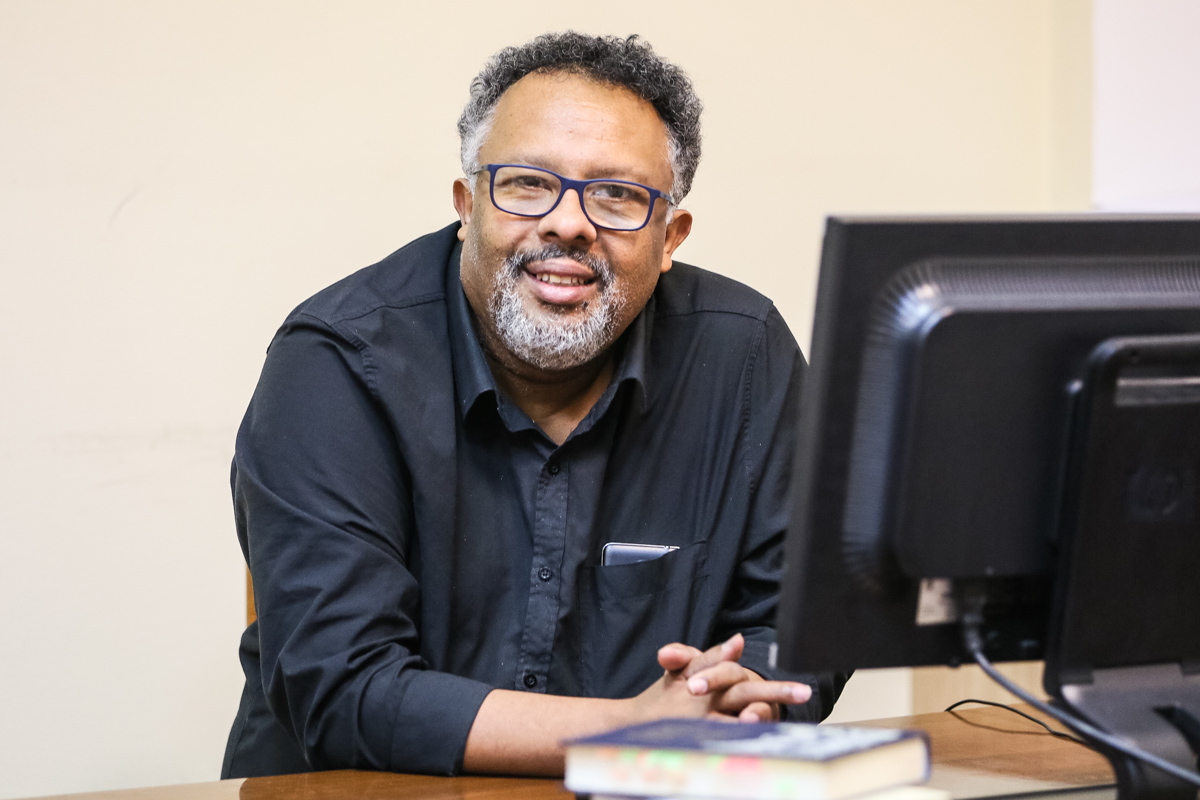Brazilian Researcher Studies Global Health Media Agenda in SPbU

Professor Wedencley Alves, PhD and Researcher from Juiz de Fora Federal University (Brazil), postdoc in the School of Advanced Studies in the Social Sciences (France), came to St Petersburg state university in order to conduct a study concerning health media discourse in BRICS countries. We asked Professor Alves about his research interests, the study and his scientific internship in SPbU.
What is the topic of your research? How would you describe it in a few words?
The title of my research is “Brazil-Russia Comparative Journalism Studies. Press coverage about BRICS and the health agenda”. The study is based on three assumptions. Firstly, there is a centrality of the media in the production and displacement of discourses in society and in history. When I speak about media, I mean mainly traditional media: mass media and mediated social relations. When I speak of “centrality”, I do not mean “exclusivity”. It means participation in almost all discursive processes.
The second assumption is that it is not possible to understand health discourses today without taking into account that centrality, both media and mediated social relations. I consider the term “health” in a broad sense. This concept includes relationship between health and disease; the meanings of well-being and malaise; issues of body; gender and sexuality; violence from the point of view of effects on the individual, such as suffering and trauma; as well as problems related to public health policies.
And, finally, the third assumption. These issues can be analyzed only in local context, but this discussion must take into consideration the global scenarios. We have a new concept of Global Health, and health journalism in BRICS is one of the possible subjects to study in this approach.
What is the place of heath theme in the global agenda nowadays?
The answer to this question directly correlates to the second and third assumptions. In 1948, the World Health Organization (WHO) has defined health as “a state of complete physical, mental and social well-being”. The WHO also developed the measures for governments that must be followed to guarantee health to the citizens. Moreover, a great number of Millennium Goals relates to the theme of health. Possibly health is, along with education, environment, security, and economics, one of the five major themes of the contemporary world.
Health is a complex theme. There are at least two bias to this question: biological and social. On my opinion, health should be considered as an aspect of social and even cultural spheres. In addition, international experts refer the problem of violence to the field of health. I should mention that medical issues are discursive: the way you define your health problems is very important to understand what is wrong.
Why did you choose Russia to compare with Brazil?
The first step of my research will be comparison between Russia and Brazil. After that I will go to other BRICS countries South Africa, India and China − during the next four years. I hope to have a continuous and productive dialogue with Russian researchers in communication, because this is just the beginning of my project and I aim to develop a theoretical framework for my study. So, this is a long term project. Globalization is a dynamic process, so, I believe that situation must change is some years.
In Brazil, in journalism there is a prevalence of liberal perception of medicine and public health, strongly tied to the market. I have just begun my work in Russia, so that, it is too early to make any findings.
Why did you choose St. Petersburg state university for conducting this research?
I have contacted the Academy of Sciences of Russia and your University was the one that it has indicated.
I have chosen SPbU due to the academic, historical, and cultural importance of Saint-Petersburg and due to the fact that the SPbU is the most important university of the city. My aim is also to make contacts with the most well-known media researchers in Russia. I plan to publish the results of my work in a book with the team of researchers.
I have always had a very positive view of Russia because of its rich history and culture. The receptivity at St Petersburg University only confirmed my best expectations.
What would you like to say to your colleagues - researchers in other countries?
Just come! It is a large, prestigious, and very welcoming university.

